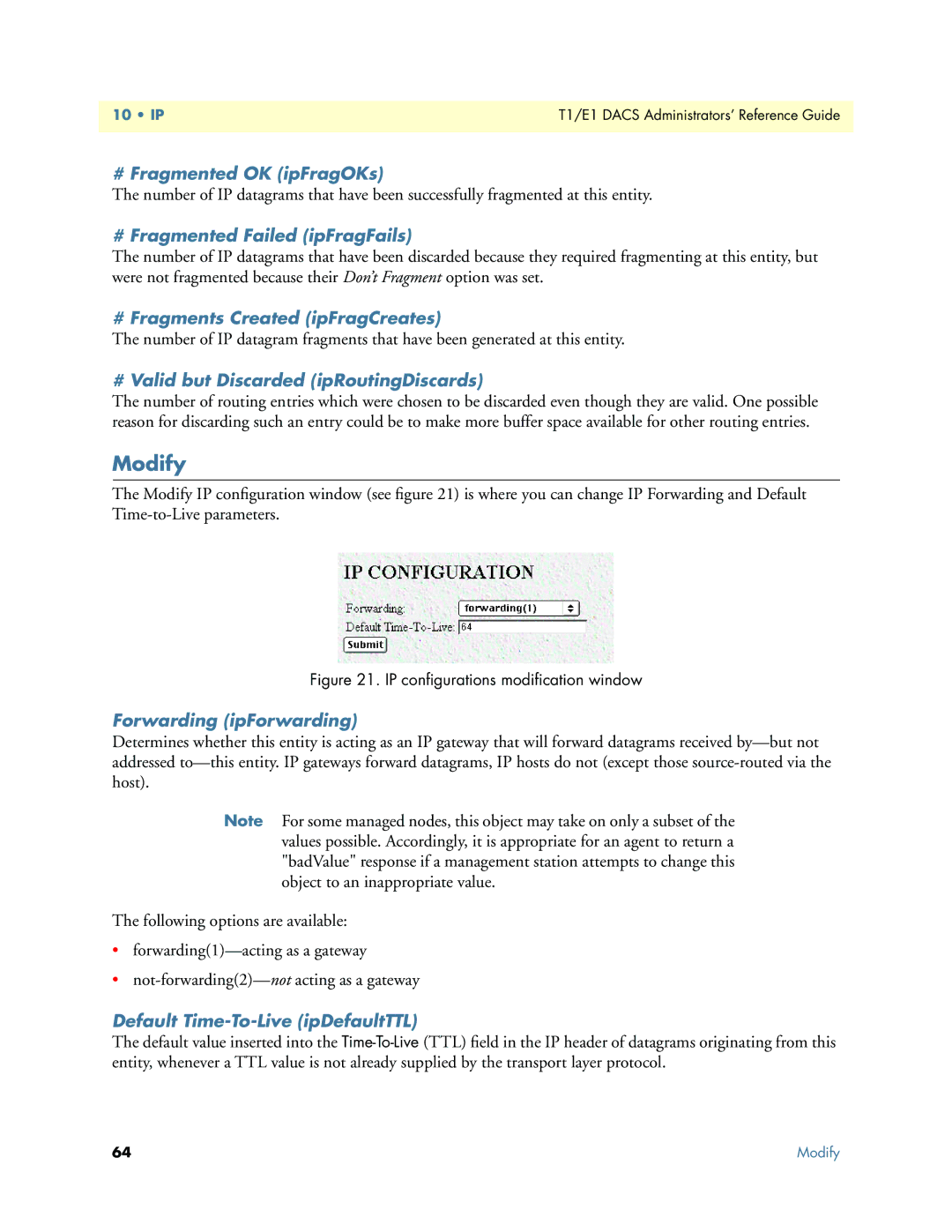
10 • IP | T1/E1 DACS Administrators’ Reference Guide |
|
|
# Fragmented OK (ipFragOKs)
The number of IP datagrams that have been successfully fragmented at this entity.
# Fragmented Failed (ipFragFails)
The number of IP datagrams that have been discarded because they required fragmenting at this entity, but were not fragmented because their Don’t Fragment option was set.
# Fragments Created (ipFragCreates)
The number of IP datagram fragments that have been generated at this entity.
# Valid but Discarded (ipRoutingDiscards)
The number of routing entries which were chosen to be discarded even though they are valid. One possible reason for discarding such an entry could be to make more buffer space available for other routing entries.
Modify
The Modify IP configuration window (see figure 21) is where you can change IP Forwarding and Default
Figure 21. IP configurations modification window
Forwarding (ipForwarding)
Determines whether this entity is acting as an IP gateway that will forward datagrams received
Note For some managed nodes, this object may take on only a subset of the values possible. Accordingly, it is appropriate for an agent to return a "badValue" response if a management station attempts to change this object to an inappropriate value.
The following options are available:
•
•
Default Time-To-Live (ipDefaultTTL)
The default value inserted into the
64 | Modify |
